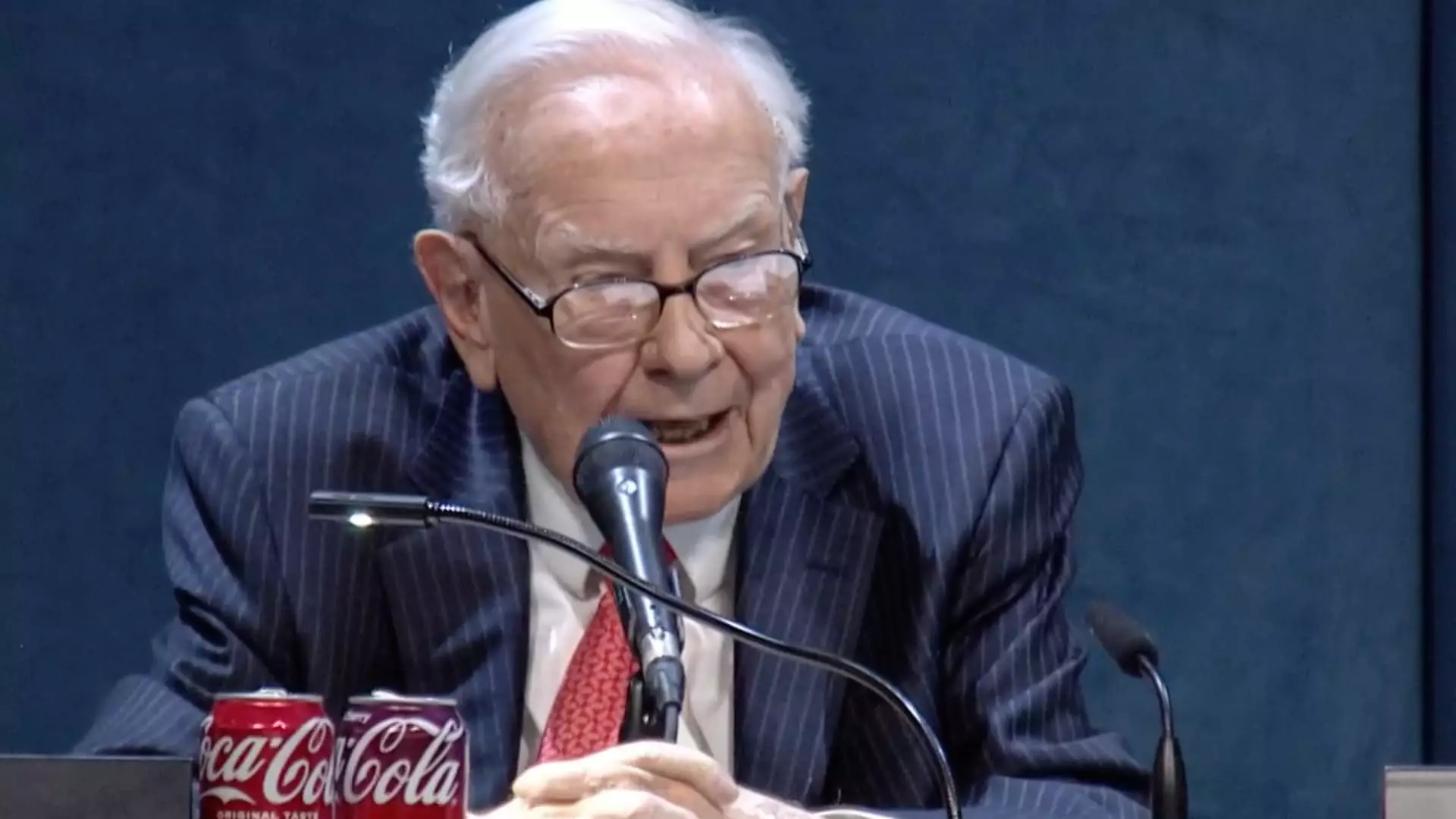In an era of aggressive nationalism, the discourse surrounding trade policy has never been more significant. Warren Buffett, the financial sage revered for his investment acumen, recently spoke out against President Trump’s punitive tariff strategies during the Berkshire Hathaway annual meeting. While many anticipated his praise for the robust American economy, Buffett instead delved into the repercussions of a protectionist doctrine, emphasizing how our nation’s prosperity is intricately linked to global economic health. Delving into Buffett’s criticisms offers a striking view into the potential consequences of American isolationism.
The Misguided Nature of Punitive Tariffs
Buffett’s condemnation of tariffs as a “big mistake” resonates deeply with the principles of free-market economics. By coining trade as an “act of war,” he reveals a fundamental belief that punitive tariffs can breed animosity rather than understanding among nations. His perspective underscores a central tenet of economic interdependence: as the world flourishes, America thrives, and vice versa. It’s a perspective that many hardliners neglect, confusing aggressive posturing with genuine economic strategy. Tariffs, instead of protecting American jobs, often serve to hinder economic progress by forcing American consumers to shoulder the burden of inflated prices.
The concept of trade as reciprocity, rather than a zero-sum game, is paramount. Buffett’s assertion that “the more prosperous the rest of the world becomes, it won’t be at our expense” challenges the isolationist narrative that characterized parts of Trump’s policy. The global community is not a battlefield; it’s a marketplace. To neglect international relationships can only cultivate resentment, which is antithetical to the very essence of diplomacy and economic growth.
Consequences of Anti-Globalization Sentiments
Buffett poignantly asserts that the U.S. stands at a crossroads; the rejection of globalization can lead to long-term adverse effects. The irony of American greatness rests in its ability to foster connections across borders, fostering innovation and prosperity. His reference to the perspectives of billions globally—that America has flourished at their expense—opens discussions about the ethical implications of our economic policies. U.S. dominance shouldn’t be a source of pride rooted in isolation, but a motivation for collaboration. After all, America started from nothing 250 years ago, an ascent fueled by openness and ingenuity.
Fearmongering inherent in Trump’s trade rhetoric fosters a dangerous precedent where isolationism may seem justifiable. However, history offers a stark warning against such tendencies. Buffeting narratives of American decline makes it essential to reinforce progressive trade policies that promote mutual growth, ensuring that the U.S. remains a leading player on the global stage.
The Impact on American Investors and Businesses
Buffett’s worry extends beyond national sentiment; it affects the practical functioning of American businesses and investors as well. The Berkshire Hathaway conglomerate highlighted “considerable uncertainty” stemming from tariffs, evidenced by a significant reduction in stock investments, including strategic stock sales in major companies like Apple and Bank of America. The protective measures instituted by the Trump administration led to market volatility and confusion, ultimately constraining corporate strategies. This unpredictability is toxic for investors who rely on stable growth patterns.
In Buffett’s world of investments, clarity is vital. The South Omaha meetings thus serve as crucial platforms, where voices from established business leaders echo the need for navigation through turbulent economic waters. A predictable market benefits not only investors but the economy at large, fostering an environment ripe for innovation and expansion.
A Call for Rational Dialogue
Buffett’s candid critiques call for an urgent reevaluation of trade stances among conservatives who have historically valued free market principles. A center-right liberal approach demands discerning the nuances between protective frameworks and diplomatic trade relationships. While tariffs may appeal to a sense of nationalism, Buffett reminds us that economic wisdom transcends these myopic views.
Through rational dialogue and an inclusive approach, it is possible to redefine America’s role in the global economy, championing cooperation over confrontation. The stakes are undeniably high; as Buffett aptly noted, “trade should not be a weapon.” By embracing openness instead, we ensure a prosperous future for generations to come.

